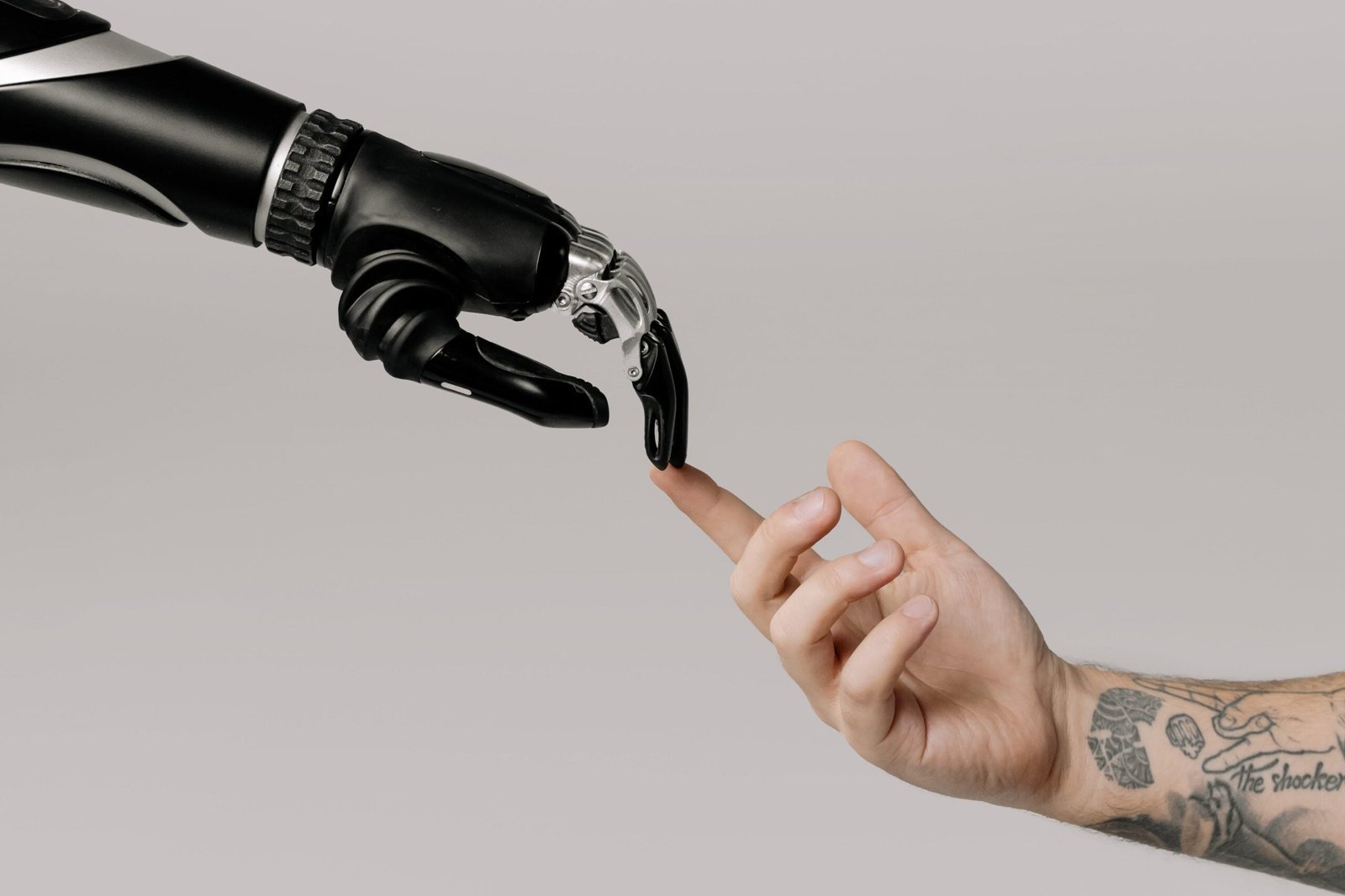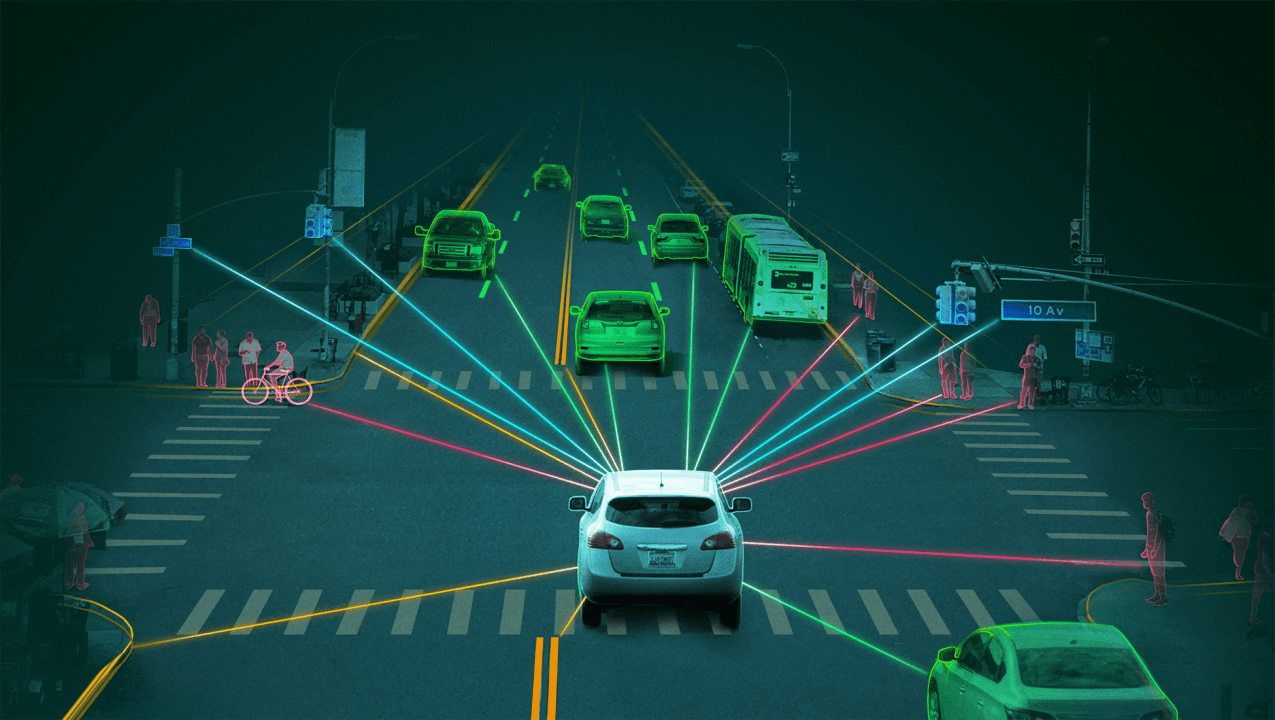Introduction
In the vast expanse of technological advancements, few have captured the imagination and sparked as much debate as Artificial Intelligence (AI). From its early conceptualization to its current state as a cornerstone of modern society, the evolution of AI is not just a history of technology, but a reflection of human ambition, creativity, and ingenuity. This blog post aims to explore the intricate journey of AI, tracing its roots from theoretical frameworks to its profound impact on various facets of our lives today.
Understanding the evolution of AI is essential, not just for tech enthusiasts but for anyone curious about the future direction of humanity in an increasingly digitized world. As we delve into this narrative, we invite you to join us in unraveling the complexities and celebrating the milestones of this fascinating field.
In the following sections, we will cover the foundational theories that paved the way for AI, the groundbreaking developments that marked its early years, its integration into the digital era, and the cutting-edge advancements that define its current landscape. We will also ponder the future possibilities and challenges that lie ahead in the ongoing saga of AI’s evolution.
Understanding AI: Foundations and Definitions
The concept of Artificial Intelligence (AI) has always been intertwined with the quest to understand human intelligence and replicate it through machines. At its core, AI is about creating systems capable of performing tasks that would typically require human intelligence, such as learning, decision-making, problem-solving, and language understanding.
What is Artificial Intelligence?
AI is a multidisciplinary field that combines computer science, cognitive science, mathematics, and more, aiming to create machines that can mimic human cognitive functions. It’s not just about programming a computer to perform complex tasks, it’s about imbuing machines with the ability to learn from data, adapt to new situations, and make decisions with minimal human intervention.
Brief History: From Early Concepts to Initial Developments
The journey of AI began long before the term was coined, with myths, stories, and speculations about artificial beings endowed with intelligence or consciousness. The formal foundation for AI as a scientific discipline was laid in the mid-20th century, with pivotal moments such as the Dartmouth Conference in 1956, often considered the birth of AI as a field.
Key Components of AI
AI encompasses various technologies and methodologies, including:
- Machine Learning (ML): A subset of AI that enables machines to improve at tasks with experience, using statistical methods to infer patterns from data.
- Neural Networks: Inspired by the human brain’s structure, these networks are a series of algorithms that recognize underlying relationships in sets of data, a key technology behind deep learning.
- Natural Language Processing (NLP): This involves machines understanding, interpreting, and generating human language in a way that is both meaningful and useful.
These components, among others, are the building blocks of AI systems that drive the technology’s evolution and its application across diverse domains.
The Dawn of AI: Early Theories and Experiments
The inception of AI as a field of study was marked by enthusiasm and ambitious goals. Early AI researchers were driven by the hypothesis that every aspect of learning or any other feature of intelligence can, in principle, be so precisely described that a machine can be made to simulate it.
Pioneering Theories and the Birth of AI Research
The groundwork for AI was laid by pioneers such as Alan Turing, whose famous Turing Test provided a criterion for intelligence that remains influential. Turing proposed that if a machine could engage in a conversation with a human without the human realizing they were interacting with a machine, the machine could be considered intelligent.
Notable Early Experiments and AI Models
The 1950s and 60s saw the development of the first AI programs. One of the earliest was the Logic Theorist, created by Allen Newell and Herbert A. Simon, which was capable of solving geometric theorems. Another significant early AI system was ELIZA, developed by Joseph Weizenbaum, which simulated a psychotherapist and was one of the first attempts at natural language processing.
Challenges and Skepticism in the Early Years
Despite these early successes, the field faced significant challenges. The limitations of early computers, the complexity of human cognition, and the high expectations set by the AI community led to a period known as the “AI winter,” where funding and interest in AI research waned due to unmet expectations.
AI’s First Milestones: Breakthroughs and Developments
Despite initial setbacks, the field of AI continued to evolve, achieving several key milestones that helped shape its future.
Significant Breakthroughs in AI Research
The development of algorithms for machine learning, such as the backpropagation algorithm for training neural networks, marked a turning point in AI’s capabilities. These advancements allowed AI systems to learn from large amounts of data, leading to significant improvements in areas like speech recognition and computer vision.
The Role of Academia and Industry in Advancing AI
The resurgence of AI in the late 20th and early 21st centuries was driven by both academic research and industry innovation. Universities and research institutions have been instrumental in advancing AI theory, while tech giants and startups have applied these theories to develop practical AI applications that have begun to transform industries.
Evolution of AI Technologies and Methodologies
Over the years, AI has evolved from rule-based systems to complex algorithms capable of deep learning, a subset of machine learning inspired by the structure and function of the human brain. Deep learning has enabled significant advancements in AI, such as the development of highly accurate image and speech recognition systems.
The Digital Revolution: AI in the Information Age
The advent of the Information Age brought about exponential growth in computing power and data availability, setting the stage for AI to integrate more deeply into various aspects of daily life and industry.
The Impact of Increased Computing Power and Data Availability
As computers became more powerful and data more abundant, AI research and development accelerated. The availability of big data sets and the computational power to process them enabled machine learning algorithms to uncover patterns and insights at an unprecedented scale, leading to more sophisticated and capable AI systems.
Key Innovations: Deep Learning, Big Data, and Cloud Computing
- Deep Learning: This technology, powered by advanced neural networks with many layers, has been a game-changer for AI, enabling breakthroughs in processing images, video, speech, and audio.
- Big Data: The vast amounts of data generated every day have become the lifeblood of AI, providing the raw material for machine learning models to learn and improve.
- Cloud Computing: The cloud has democratized access to powerful computing resources, allowing both individuals and organizations to develop and deploy AI solutions without the need for significant hardware investments.
AI’s Integration into Mainstream Technology and Applications
AI is no longer just a subject of academic research but a key component of consumer and business technology. From personal assistants like Siri and Alexa to recommendation systems on platforms like Netflix and Amazon, AI has become an integral part of the technology we use every day.
AI in Everyday Life: Applications and Implications
The applications of AI are as diverse as they are impactful, touching virtually every industry and aspect of our lives.
Real-world Applications of AI
- Healthcare: AI is revolutionizing diagnostics, personalized medicine, and patient care through advanced data analysis and predictive modeling.
- Finance: From fraud detection to algorithmic trading and personalized banking services, AI is transforming the financial sector.
- Transportation: AI plays a crucial role in the development of autonomous vehicles and the optimization of logistics and supply chains.
Ethical Considerations and Societal Impact
As AI becomes more pervasive, ethical considerations come to the forefront. Issues such as privacy, bias in AI algorithms, and the ethical use of AI in surveillance and decision-making are sparking intense debate.
The Debate on AI and Job Displacement
One of the most pressing concerns is the potential for AI to displace jobs. While AI can automate routine tasks, there is also a growing recognition of the need to reskill and upskill the workforce to prepare for a future where AI and humans work side by side.
The Modern Era: AI and Advanced Technologies
In recent years, AI has not only grown more sophisticated but has also become a driving force behind other emerging technologies, shaping the future of innovation.
Recent Advancements in AI Technologies
The modern era of AI is characterized by rapid advancements in algorithms, computing power, and the application of AI in new and innovative ways. Technologies like Generative Adversarial Networks (GANs), reinforcement learning, and transfer learning are pushing the boundaries of what AI can achieve, from creating realistic images and videos to enabling machines to learn complex behaviors in dynamic environments.
AI’s Role in Shaping Emerging Technologies
AI is at the heart of several emerging technologies, acting as a catalyst for innovation and transformation:
- Internet of Things (IoT): AI enhances IoT by making sense of vast amounts of data from connected devices, enabling smart homes, cities, and industries.
- Blockchain: AI and blockchain complement each other, with AI providing intelligent analysis of blockchain data and blockchain ensuring the integrity and security of AI operations.
- Quantum Computing: Although still in its infancy, the integration of AI with quantum computing holds the promise of solving complex problems far beyond the reach of current classical computers.
The Convergence of AI with Other Scientific Fields
The fusion of AI with fields like genomics, neuroscience, and materials science is leading to groundbreaking discoveries and innovations. For example, AI algorithms are helping to decipher the complex patterns of genetic data, leading to new insights into diseases and potential therapies.
AI’s Future Frontiers: Possibilities and Challenges
As we look to the future, the possibilities of AI seem boundless, yet they are accompanied by significant challenges that need to be addressed.
Predictions for the Future Development of AI
Experts predict that AI will continue to advance, potentially achieving artificial general intelligence (AGI) — AI that surpasses human cognitive abilities in all tasks. This prospect raises both exciting possibilities and profound ethical questions.
Potential Breakthroughs and Transformative Technologies
Future breakthroughs in AI could lead to transformative technologies that reshape industries, from fully autonomous vehicles and advanced robotic systems to AI-driven medical diagnostics and treatments.
Addressing Future Challenges: Ethics, Regulation, and Societal Impact
The rapid advancement of AI necessitates careful consideration of its ethical implications, the need for robust regulations to ensure its safe and equitable use, and strategies to mitigate its societal impact, particularly in terms of employment and privacy.
Conclusion: Reflecting on the Evolution of AI
As we’ve journeyed through the annals of AI history, from its conceptual beginnings to its current role as a linchpin of modern technology, it’s clear that the evolution of AI is a testament to human ingenuity and vision. The milestones we’ve discussed illuminate a path marked by remarkable achievements, challenges overcome, and an ever-expanding horizon of possibilities.
AI’s journey is far from complete. With each passing day, new advancements are made, ethical dilemmas are encountered, and the societal impact of AI becomes more pronounced. The future of AI, while promising and exciting, is also fraught with uncertainties that demand our attention and thoughtful consideration.
Reflecting on AI’s Impact and Future Potential
The transformative power of AI is undeniable. It has the potential to solve some of humanity’s most pressing problems, from climate change to curing diseases. Yet, its evolution also poses significant challenges that need to be navigated with care, particularly regarding ethics, privacy, and the future of work.
The ongoing development of AI is a collaborative endeavor that transcends borders, disciplines, and industries. It is a journey that requires the collective wisdom, creativity, and ethical consideration of all stakeholders involved.
Final Thoughts on the Role of Society in Shaping AI’s Evolution
As we stand on the brink of potentially revolutionary AI advancements, it is crucial for society to play an active role in shaping the future of AI. This involves fostering a broad understanding of AI’s capabilities and limitations, engaging in open and inclusive dialogues about its ethical implications, and ensuring that the benefits of AI are accessible to all.
Call to Action: Engaging with the Future of AI
We invite you, our readers, to engage with the ongoing evolution of AI actively:
- Explore More About AI: Delve deeper into the topics we’ve discussed, seek out reputable sources, and stay informed about the latest developments in AI research and applications.
- Engage Responsibly with AI Technologies: As AI becomes more integrated into our lives, it’s important to use these technologies thoughtfully, considering their broader implications.
- Join the Conversation: Share your thoughts, concerns, and questions about AI’s evolution in the comments below. Let’s foster a community of informed and thoughtful discourse around the future of AI.
The evolution of AI is a narrative of human progress, a mirror reflecting our collective aspirations and fears. As we continue to write the next chapters of this story, let’s do so with a commitment to ethical principles, inclusivity, and a vision for a future where AI enhances the human experience for all.



